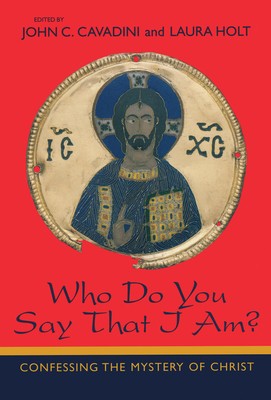
- We will send in 10–14 business days.
- Publisher: University of Notre Dame Press
- ISBN-10: 0268044015
- ISBN-13: 9780268044015
- Format: 16 x 23.6 x 3 cm, hardcover
- Language: English
- SAVE -10% with code: EXTRA
Who Do You Say That I Am (e-book) (used book) | bookbook.eu
Reviews
Description
Drawing together renowned scholars of Christianity, Judaism, and Islam, Who Do You Say That I Am? focuses on the identity and ministry of Jesus. This distinctive collection provides an ecumenical forum in which adherents of some of the world's major religions comment on the tradition of Christian engagement with fundamental questions of Christology. The essays in this volume were delivered at an international conference at the Tantur Institute for Ecumenical Studies in Israel during May 2000. Contributors to this volume write on varied topics, including the Christological creeds and confessions of the early church, the confessions of the Councils, the many and various titles given to Jesus in the New Testament, the relationship between the biblical confessions and the creedal confessions of the Councils, a theology of the poor, Christology and inter-religious dialogue, and a comparative theology of mutual illumination among Christianity, Judaism, and Islam. While covering diverse themes, the essays in this volume are united by the conviction that the faith of the Church is by its very nature open to development and understanding.
EXTRA 10 % discount with code: EXTRA
The promotion ends in 17d.08:34:52
The discount code is valid when purchasing from 10 €. Discounts do not stack.
- Publisher: University of Notre Dame Press
- ISBN-10: 0268044015
- ISBN-13: 9780268044015
- Format: 16 x 23.6 x 3 cm, hardcover
- Language: English English
Drawing together renowned scholars of Christianity, Judaism, and Islam, Who Do You Say That I Am? focuses on the identity and ministry of Jesus. This distinctive collection provides an ecumenical forum in which adherents of some of the world's major religions comment on the tradition of Christian engagement with fundamental questions of Christology. The essays in this volume were delivered at an international conference at the Tantur Institute for Ecumenical Studies in Israel during May 2000. Contributors to this volume write on varied topics, including the Christological creeds and confessions of the early church, the confessions of the Councils, the many and various titles given to Jesus in the New Testament, the relationship between the biblical confessions and the creedal confessions of the Councils, a theology of the poor, Christology and inter-religious dialogue, and a comparative theology of mutual illumination among Christianity, Judaism, and Islam. While covering diverse themes, the essays in this volume are united by the conviction that the faith of the Church is by its very nature open to development and understanding.


Reviews